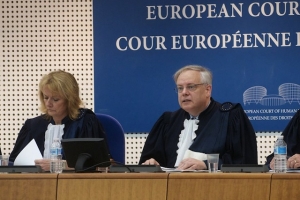Afficher les éléments par tag : Religious freedom
The religious situation in Spain: a brief overview
Spain has undergone deep transformations in the religious field since the democratic transition initiated after the death of Franco in 1978. This article provides a general overview of the main changes that occurred both in the religious landscape and in public policy governing religious diversity. After describing the broad societal transformations that have shaped the State’s relations with organised religious communities, this paper will provide a more exhaustive account of the current religious configuration of the country. It will then outline the primary ways in which the State conducts governance of religious diversity, followed by a more detailed description of the situation of religious education.
Informations supplémentaires
- Auteur Julia Martínez Ariño
Towards a European Consistency in Freedom of Religion or Belief
Since the fall of the Berlin Wall, the European Union and the Council of Europe have become increasingly prominent in the struggle with religious freedom in Europe and beyond. Three recent steps have confirmed the trend, exposing opportunities and liabilities inherent in the rise of European institutions as key actors in the interaction of law, politics, society and religion.
On 24 April 2013, in Strasbourg, the Parliamentary Assembly of the Council of Europe adopted Resolution N. 1928 (2013), ‘Safeguarding human rights in relation to religion and belief, and protecting religious communities from violence’. The Assembly warned against ‘the increasing occurrence of violent attacks against religious communities and individuals throughout the world on the basis of their religion or beliefs’ and noted that ‘there is not only physical, but also psychological violence against persons because of their religion or beliefs’. Representatives of national Parliaments to the Council of Europe therefore condemned ‘such violence in unequivocal terms’ (n. 1). Witnessing the growing conversation between European institutions, the Assembly also called on ‘the European Union, in its political dialogue with non-member countries, to enhance its monitoring of the situation of communities and individuals defined by religion or beliefs’ (n. 14).
Informations supplémentaires
- Auteur Marco Ventura







 MangoGem
MangoGem